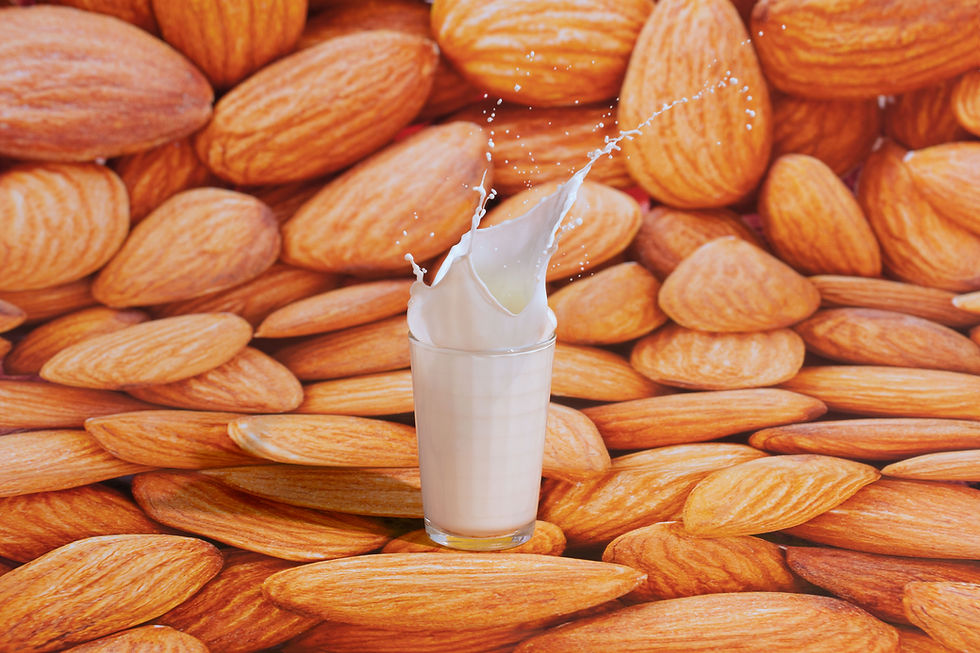Eating Clean and Green: A Guide to Vegan Clean Food
- Metaspace

- May 15, 2023
- 4 min read

The term "clean food" is generally used to describe foods that are minimally processed, whole, and free from artificial additives or preservatives. Clean foods typically include whole fruits and vegetables, whole grains, lean proteins, and healthy fats, as well as foods that are free from added sugars, artificial sweeteners, and chemical additives.
Clean eating is often associated with a focus on fresh, whole foods, and an avoidance of processed and packaged foods, as well as foods with added chemicals, preservatives, or artificial ingredients. The idea behind clean eating is to choose foods that are as close to their natural state as possible, in order to maximize their nutritional value and minimize the intake of potentially harmful substances.
It's worth noting that the term "clean" is not a regulated or standardized term, and different people or organizations may use it to mean slightly different things. However, in general, clean foods are those that are minimally processed, whole, and free from artificial additives or preservatives.
The term "vegan" refers to a person who follows a lifestyle that excludes the use of any animal products or by-products for food, clothing, or any other purpose. This means that a vegan diet consists entirely of plant-based foods, and they avoid consuming meat, fish, dairy products, eggs, honey, and any other animal-derived products. Vegans also typically avoid products made with animal-derived materials, such as leather, wool, and silk, and instead opt for cruelty-free and plant-based alternatives. The vegan lifestyle is often adopted for ethical, environmental, and health reasons.
Vegan food can be considered "clean" food. In fact, many people who follow a clean eating lifestyle choose to adopt a vegan diet, as it typically involves consuming a lot of whole, plant-based foods that are minimally processed and free from artificial additives or preservatives.
A vegan diet that focuses on whole foods, such as fresh fruits and vegetables, whole grains, legumes, nuts, and seeds, can be a very healthy and nutritious way to eat. It can be a good way to ensure that you are getting a wide range of vitamins, minerals, and other important nutrients, while also avoiding many of the potential health risks associated with consuming animal products.
Of course, not all vegan food is automatically "clean" - just like any other type of diet, there are vegan foods that are highly processed, high in sugar, or contain artificial ingredients. However, if you choose to focus on whole, plant-based foods, you can definitely follow a vegan diet that is also "clean.
There are many examples of clean, whole foods that are also vegan. Here are a few examples:

Fruits: Apples, oranges, bananas, berries, mangoes, and many other fruits are all vegan and clean foods.

Vegetables: Leafy greens, broccoli, cauliflower, carrots, bell peppers, and other vegetables are all great choices for clean eating vegans.

Whole grains: Quinoa, brown rice, oats, barley, and other whole grains are all vegan and considered to be clean foods.

Legumes: Lentils, chickpeas, black beans, kidney beans, and other legumes are all excellent sources of protein and fibre, and are vegan and clean.

Nuts and seeds: Almonds, cashews, walnuts, chia seeds, flax seeds, and other nuts and seeds are all vegan and considered to be clean foods.

Tofu and tempeh: These soy-based foods are great sources of protein and are vegan and clean, as long as they are minimally processed and free from additives.

Plant-based milks: Almond milk, coconut milk, soy milk, and other plant-based milks are vegan and can be considered clean foods if they are free from added sugars and other additives.
These are just a few examples - there are many other vegan foods that can be considered clean, depending on how they are prepared and whether or not they contain added sugars, preservatives, or other artificial ingredients.
Here are some more examples of clean, whole foods that are vegan:

Herbs and spices: Fresh and dried herbs like basil, parsley, cilantro, thyme, and spices like turmeric, cumin, and black pepper are vegan and add flavour and nutrients to dishes without adding calories or fat.

Mushrooms: Many types of mushrooms are low in calories and high in nutrients, including B vitamins, potassium, and fibre. Try adding shiitake, portobello, or oyster mushrooms to salads or stir-fries.

Seaweed: Edible seaweed like nori, dulse, and wakame are high in minerals like iodine and iron, and can be used to add flavour and nutrients to soups, salads, and sushi rolls.

Nutritional yeast: This vegan-friendly yeast is often used as a cheese substitute and is a good source of protein, fibre, and B vitamins.

Fermented foods: Foods like sauerkraut, kimchi, and tempeh are vegan and also contain beneficial bacteria that support gut health.

Berries: Berries like strawberries, blueberries, and raspberries are low in calories and high in antioxidants, fibre, and other nutrients.

Sweet potatoes: These root vegetables are rich in vitamins A and C, fibre, and potassium, and can be baked, roasted, or mashed as a healthy side dish.
When following a clean eating vegan diet, it's important to read labels and choose foods that are free from artificial additives, preservatives, and other chemical ingredients. Focus on eating a variety of whole, plant-based foods that provide the nutrients and energy you need to feel your best.
In conclusion, vegan clean food can be a healthy and sustainable way to eat. By choosing whole, minimally processed foods and avoiding artificial additives, preservatives, and other chemicals, you can support your overall health and well-being while also reducing your impact on the environment.




Comments